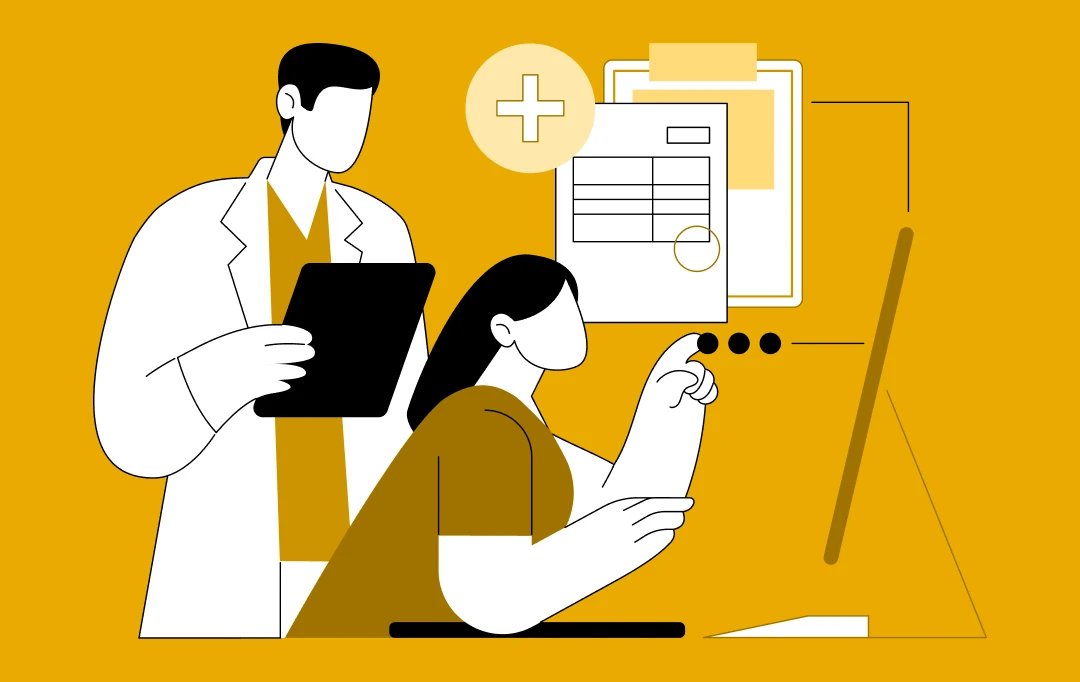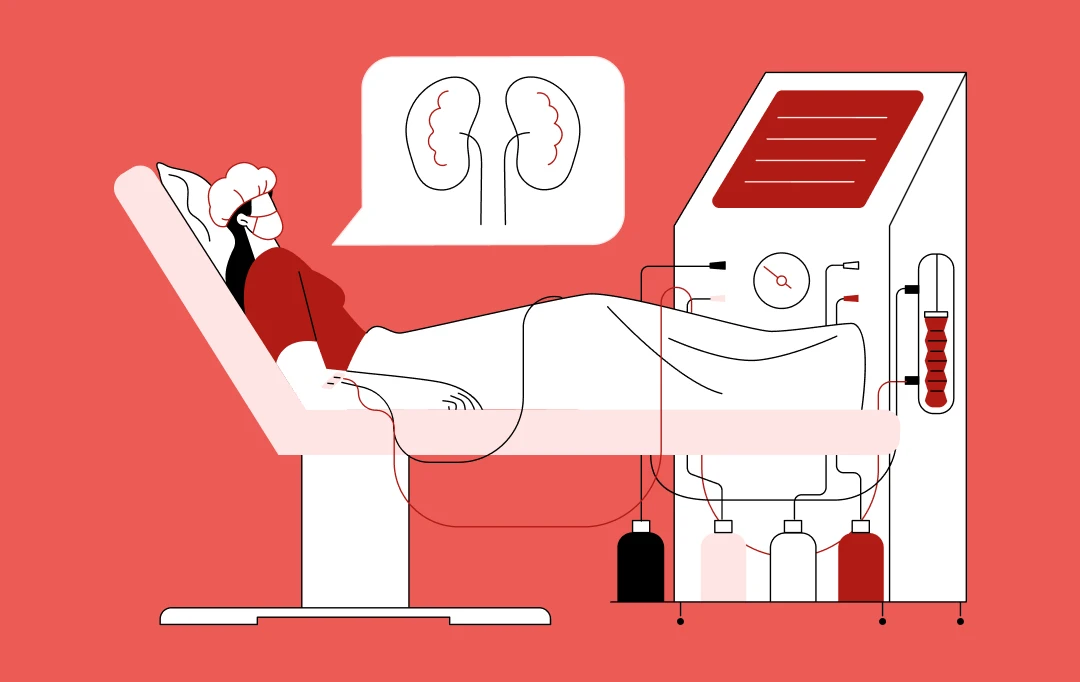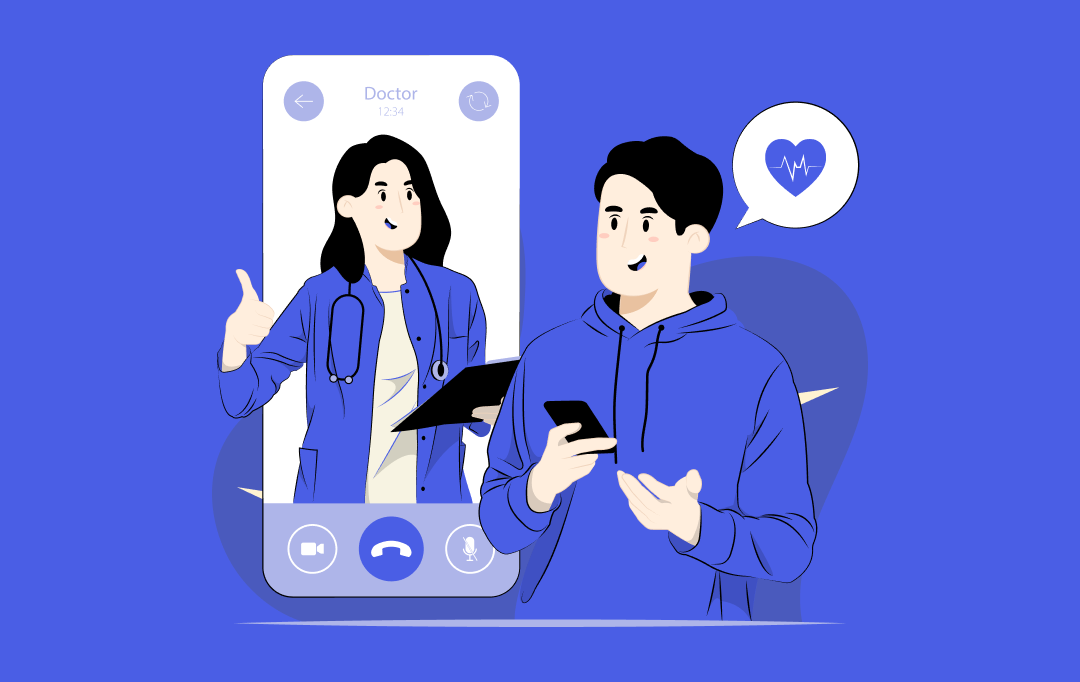- Understanding the Role of RPA in Healthcare
- What Are Some Use Cases for Implementing RPA in Healthcare?
- Managing and Scheduling Appointments
- Account Settlement
- Document Digitization Process
- Insurance Claim Management
- Workflow Management
- EHR Management
- Data Analytics
- Asset Tracking
- Regulatory Compliance
- What Are the Benefits of Using RPA in Healthcare Operations?
- Personalized User Experience
- Increased Appointment Turnout
- Reduced Risk of Human Errors
- Better Employee Satisfaction
- Cost Efficiency
- Better Data Protection
- How Healthcare Organisations are Harnessing RPA: Real World Examples
- University Hospitals Birmingham
- GE Healthcare
- McKesson Corporation
- How to Implement RPA in Healthcare - A Step-by-Step Process
- Identify Suitable Processes
- Engage Stakeholders
- Select the Right RPA Partner
- Discuss Your RPA Requirements
- Provide Thorough Training
- Continuous Monitoring and Optimization
- Measure Implementation Cost and ROI Opportunities
- Stay Informed
- Solutions to the Challenges Faced While Implementing RPA in the Healthcare Industry
- Regulatory Compliance
- Change Management
- Complex IT Infrastructure
- Scalability and Maintenance
- How Can Appinventiv Help Implement RPA in Healthcare?
- FAQs
Today’s healthcare industry is exponentially burdened by high operating costs, strict compliance regulations, slow and redundant processes, and high patient volumes. These hardships negatively affect the quality and speed of healthcare management, patient care, and operational processes. To overcome these challenges, companies operating in this industry need to embrace automation to accelerate healthcare digital transformation.
While AI and IoT are at the forefront of supporting this shift, leveraging the power of Robotic Process Automation (RPA) in healthcare can significantly advance the patient experience, streamline processes, improve efficiency, and drive innovation.
The global market of RPA in healthcare was valued at $1.4 billion in 2022 and is projected to reach $14.18 billion by 2032, at a CAGR of 26.1% from 2023 to 2032.

To help you better understand the impact of RPA in healthcare, this blog highlights the various use cases, examples, challenges, benefits, and tips to implement RPA in healthcare.
Understanding the Role of RPA in Healthcare
RPA in healthcare has been a complete game-changer, providing immense benefits to the industry. It uses software robots or “bots” to mimic human actions to perform high-volume, rule-based, and repetitive tasks while interacting with various healthcare systems. The integration of robotics process automation in healthcare not only streamlines operations but also significantly reduces the risk of human error in repetitive tasks.
RPA can efficiently handle tasks like patient registration, claims processing, data entry, and report generation. This not only reduces errors but also saves time and improves overall operational efficiency.
By freeing healthcare professionals from time-consuming administrative tasks, RPA enables them to focus on more crucial tasks, leading to enhanced outcomes and improved patient care.
When RPA is used in healthcare processes along with other emerging technologies like AI, ML, and NLP, it can elevate operations by making informed decisions, resolving business issues, analyzing vast troves of data, and performing other human-level tasks.
What Are Some Use Cases for Implementing RPA in Healthcare?
RPA in healthcare can efficiently automate tasks across the verticals of healthcare organizations, including records management, billing, and processing to front-office tasks. Exploring further, the capabilities of robotics process automation in healthcare will reveal its potential in transforming patient data management, operational efficiency and more. To better understand why the healthcare industry should implement intelligent automation, let us look into some of the most common use cases of RPA in healthcare.

Managing and Scheduling Appointments
Through automation, RPA makes the appointment scheduling process quick and smooth without human intervention. Sending timely notifications to the patients and reminding them of the appointment makes the customer feel valued. Furthermore, it also informs the patients about any changes in the schedule because of the doctor’s unavailability, avoiding confusion and hassle.
Also Read: How much a doctor appointment app like ZocDoc costs
Account Settlement
Healthcare delivery requires managing multiple accounts of the same patient through consultation, tests, medicines, etc. Managing and calculating them manually is prone to making errors while increasing the wait time. With robotic process automation in healthcare, organizations can bring all the accounts in one place and do the correct calculations in just a few clicks. Automatically sending push notifications to patients prevents them from waiting in queues for account settlement.
Document Digitization Process
With NLP, OCR, and other data labeling processes, RPA services for healthcare can use intelligent document processing (IDP) to prepare and ingest documents. Patient repositories that contain data from their medical records to health insurance claims can be easily prepared and stored.
Insurance Claim Management
RPA in healthcare claims management processing simplifies the complex insurance claim process. Automating the process ensures the shift completion of tasks while meeting all the regulatory compliances. RPA integration in healthcare insurance claims processing streamlines the entire workflow, eliminating errors and enhancing efficiency.
Workflow Management
Dealing with regular workflow at any healthcare organization involves multiple processes, including patient treatment, inventory management, follow-ups, resource utilization, and much more. Managing all these processes manually is undoubtedly a time-consuming, error-prone, and inefficient approach. Robotic process automation in healthcare automates these basic workflows, leading to better utilization of resources with a higher focus on critical activities.
EHR Management
RPA in Electronic Health Records (EHR) management possesses the capacity to revolutionize the entire healthcare industry. RPA bots can regularly monitor records from various sources to collect patient information and update their EHRs and EMRs. It can also download PDFs and other medical information from a variety of documents through OCR (Optical Character Recognition).
Data Analytics
Healthcare organizations leverage RPA tools to streamline internal research using the wealth of valuable data at their disposal. Bots can be instructed to input patient information and prepare it for further analysis, empowering healthcare professionals to enhance diagnostic precision and deliver personalized treatment to each patient. Alternatively, healthcare providers can utilize business intelligence for the analysis of healthcare data.
Also Read: A Complete Guide on Data Science & Analytics for Businesses
Asset Tracking
Medical staff often waste significant time searching for misplaced hospital equipment, leading to work inefficiencies and delays in treatment delivery. Hospitals can enhance their operational efficiency by integrating RPA software with IoT-powered digital sensors, enabling staff to swiftly locate devices, manage inventory, and monitor equipment status. This same RPA-driven tracking approach can also be extended to the location of organs designated for transplantation, facilitating precise surgical planning and seamless procedures.
Regulatory Compliance
RPA in the healthcare sector can also help adhere to regulatory compliance by automating various compliance-related tasks. It ensures accuracy and timeliness in generating reports, collecting and verifying data, and maintaining records. It helps streamline processes, reduce compliance-related risks, and provide auditable records, making it an invaluable tool for healthcare organizations to meet regulatory standards efficiently and effectively.
Also Read: How to Use RPA in Finance? Use Cases and Real-World Examples
What Are the Benefits of Using RPA in Healthcare Operations?
RPA and AI in healthcare not only enhance accuracy and improve productivity but also ensure compliance with regulations and deliver better healthcare outcomes. Let’s have a look at some of the most influential benefits of RPA in healthcare.
Personalized User Experience
Robotic Process Automation in healthcare is revolutionizing how medical professionals interact with their patients. By automating rule-based and repetitive administrative processes, RPA provides a personalized user experience, allowing healthcare providers to concentrate more on patient care and enhancing their overall experience. This personalized user experience fosters patient satisfaction and loyalty, ultimately driving business growth.
Increased Appointment Turnout
Since RPA bots send timely reminders to patients about their appointment scheduling, it eliminates the need for human intervention, schedules appointments at a much faster pace, and reduces the likelihood for the patient to forget about the appointment, which leads to increased appointment turnout and improved use experience.
Additionally, the patient admission and discharge process can also be optimized by providing higher levels of user service.
Reduced Risk of Human Errors
By implementing RPA in the healthcare industry, medical professionals can eliminate the risk of human error caused by fatigue, distraction, or oversight. This results in improved accuracy and enhanced data quality, leading to more efficient and reliable operations.
Better Employee Satisfaction
RPA helps employees by relieving them of repetitive and mundane tasks, enhancing their capabilities to provide better user service. This frees up their time to get involved in strategic and intelligence-based roles, thus improving their consistent growth and learning. The growth opportunities and the feeling of adding value to the company automatically increase employee satisfaction levels.
Cost Efficiency
It is a myth that technology integration costs a fortune. RPA services for the healthcare industry offer substantial savings by performing tasks quickly and efficiently while reducing the risk of errors. This, in turn, adds to saving on human resources costs while eliminating the repeated tasks because of mistakes and misses on compliance, thus improving patient care.
Better Data Protection
Data transfer is enhanced in automated processes, ensuring a higher level of security. In situations where humans are responsible for managing the reports section, there exists a potential risk of unintended access to the reports by another employee or an unauthorized individual. Even in cases where such access is unintentional, physical paper records can be easily retrieved. On the other hand, automated processes restrict access only to authorized persons, ensuring a more secure environment for data handling.
Remember, the Health Insurance Portability and Accountability Act (HIPAA) governs the utilization and disclosure of sensitive patient health data and sets guidelines for ensuring data security and privacy.
How Healthcare Organisations are Harnessing RPA: Real World Examples
There are many companies that have effectively incorporated RPA into their healthcare operations. Let’s look at a few actual cases of companies utilizing RPA services for healthcare:

University Hospitals Birmingham
University Hospitals Birmingham (UHB), a major healthcare service provider in the UK, uses RPA with their patient administration system to streamline and improve the registration process for a large volume of patients.
Across their various healthcare facilities, UHB has deployed self-service kiosks, which have received high patient satisfaction ratings. This positive response is attributed to eliminating queues and the quick self-registration process. By implementing these kiosks, UHB has witnessed the efficiency of its front-desk staff by 50% and doubled the patient flow, all without hiring an additional 20-30 receptionists.
GE Healthcare
To improve its revenue cycle management procedures, GE Healthcare has realized the impact of RPA in healthcare and implemented it in its various processes. They have streamlined reimbursement procedures, decreased billing errors, and enhanced claims administration through automation.
McKesson Corporation
McKesson Corporation, one of the top providers of healthcare services, has been using RPA for healthcare to manage inventories, streamline the supply chain, and fill orders. With the right applications of RPA in healthcare, the company can now increase inventory precision, lower manual errors, and guarantee prompt delivery of medical supplies.
These are just a few examples of RPA in healthcare demonstrating how companies are using RPA for healthcare. These firms are revolutionizing how they implement automation technologies, which streamline administrative processes, foster innovation, improve patient outcomes, and drive change.
How to Implement RPA in Healthcare – A Step-by-Step Process
Every healthcare organization needs a robust RPA system to keep up with the latest technology and business requirements. Thus, it is important to follow a systematic step-by-step process while implementing RPA in the healthcare industry:

Identify Suitable Processes
We start your RPA implementation journey by identifying healthcare processes that are repetitive, rule-based, and have a high volume of transactions. These are the ideal candidates for RPA implementation.
Engage Stakeholders
Next, you must involve key stakeholders such as healthcare providers, IT teams, and compliance officers to ensure your RPA solution aligns with organizational goals and compliance requirements.
Select the Right RPA Partner
Ensure that you take a granular approach to automation by partnering with an experienced and reliable healthcare RPA software development company (such as us). The healthcare software development team should possess enough experience and expertise in building scalable healthcare apps. They should be thoroughly aware of medical compliances and have complete knowledge of implementing advanced technologies like AI, data analytics, and other patient privacy protection technologies.
Discuss Your RPA Requirements
Discuss your RPA requirements with the development team to automate the required process. Consider the limitations of your IT infrastructure, and take a progressive approach to a complete automation solution.
Provide Thorough Training
Our RPA experts provide training to your project managers for the smooth implementation and functioning of RPA solutions (if required). Based on that, you can provide comprehensive training to your staff, ensuring they are proficient in using RPA tools and well-versed with the potential benefits. This will help build enthusiasm and confidence among employees.
Continuous Monitoring and Optimization
Regularly monitor the performance of your RPA processes and make necessary improvements. Optimize workflows to ensure they remain efficient and effective.
Measure Implementation Cost and ROI Opportunities
Implementation of any new technology is normally weighed with the cost-saving that it will bring. Most healthcare organizations that implement RPA normally achieve the payback in time as small as 12 months. With that said, continuously measure the ROI of your RPA implementation. This will help justify the costs and showcase the benefits to the organization.
Stay Informed
Stay up-to-date with the latest developments and RPA trends in healthcare. This will help you remain competitive and continue to improve your processes.
Remember that successful RPA implementation in healthcare requires a strategic and well-planned approach. By following these tips, you can harness the benefits of automation while improving the overall efficiency and quality of healthcare services.
Solutions to the Challenges Faced While Implementing RPA in the Healthcare Industry
Implementing RPA in healthcare is indeed a revolutionary step, but it is both useful and challenging. However, with the right solutions in place, we can easily overcome these obstacles. Let’s discuss the barriers you might face while implementing RPA in the healthcare industry and the solutions to overcome those.
Regulatory Compliance
Challenge: To safeguard the security and privacy of patient data, the healthcare industry is subject to strict rules. Thus, implementing RPA while remaining compliant can pose challenges.
Solution: Your RPA solutions should abide by all applicable laws, such as HIPAA, PCI DSS, etc., and follow strong security measures like data encryption practices to protect sensitive patient information.
Change Management
Challenge: Implementing RPA could disrupt current workflows, and employee resistance to embrace change could pose a challenge to its successful implementation.
Solution: To encourage the adoption of RPA in healthcare, it is essential to foster a culture of collaboration and openness. This can be achieved by involving your employees early in the process, providing comprehensive training, and clearly explaining the benefits of RPA in healthcare. Additionally, during the training, it is important to address any concerns and provide ongoing assistance.
Complex IT Infrastructure
Challenge: Healthcare firms sometimes have complicated IT infrastructures with numerous legacy applications, which makes integration and data exchange difficult.
Solution: To create a seamless integration strategy, we carefully analyze the current infrastructure, pinpoint integration points, and collaborate with IT teams. We make use of middleware technologies and APIs to connect various systems.
Scalability and Maintenance
Challenge: As healthcare businesses expand, It can be difficult to scale RPA capabilities to manage growing volumes. Also, committed personnel are needed to update and maintain RPA bots regularly.
Solution: We develop a scalable RPA for healthcare that can efficiently handle a growing workload and adapt to future changes. Hire a dedicated development team to manage the RPA bot and maintenance, do routine audits, and continuously enhance procedures.
How Can Appinventiv Help Implement RPA in Healthcare?
The healthcare industry is struggling with the scarcity of specialized resources and patient data management. In such a scenario, robotic process automation is the need of the hour. Delaying such an investment can lead to missed opportunities for increased efficiency and cost savings.
By partnering with a reputed healthcare app development company like Appinventiv, you can efficiently and swiftly implement RPA solutions into your existing systems.
Appinventiv can offer you the best-in-class RPA services for the healthcare industry and build a robust RPA solution for your medical business. We have a team of highly skilled AI/ML experts who have delivered more than 250+ healthcare projects for both startups and enterprises.
For instance, we have built a revolutionary solution for YouCOMM, transforming their in-hospital patient communication by providing real-time access to medical help. With a customizable patient messaging system, patients can easily notify staff of their needs through voice commands and hand gestures.

For another client, Soniphi, we built an application based on a resonant frequency-based personal wellness system. We integrated the concept of human bio-acoustic into mobile devices to witness the relationship between a voiceprint and the physiology, personality, structure, and function of the human body.
RPA in healthcare acts like a digital assistant, navigating complex operations, thereby allowing healthcare practitioners to follow a streamlined and hassle-free medical practice.
Discuss your requirements with our experts, and we will automate your healthcare operations, enabling you to provide the best services to your patients.
FAQs
Q. What is RPA in healthcare?
A. Robotic process automation in healthcare is a revolutionary technology that aims to transform the entire healthcare landscape by automating time-consuming and repetitive tasks. RPA technology seamlessly integrates with your existing systems, accelerating administrative processes such as patient registration, claims processing, and data entry.
By reducing human error and increasing operational efficiency, RPA empowers healthcare professionals to focus on delivering quality care and improving patient outcomes. With streamlined workflows and enhanced accuracy, RPA in healthcare paves the way for a more efficient and patient-centric healthcare ecosystem.
Q. How does RPA improve efficiency and accuracy in the healthcare industry?
A. RPA has revolutionized healthcare by automating repetitive tasks, reducing human errors, and enabling seamless data integration. It has allowed healthcare professionals to focus on more important tasks while enhancing precision in processes like data entry and claims processing.
With comprehensive patient information analysis, RPA can enhance the quality of patient care and improve overall healthcare outcomes. The future of the industry cannot be imagined without the applications of RPA in healthcare. So, if you want to improve healthcare efficiency and accuracy, consider implementing RPA in the healthcare sector today.
Q. What is the drawback of RPA implementation in healthcare?
A. The major drawback of RPA applications in healthcare is that they can only process structured data, whereas 90% of the data of the healthcare industry is unstructured. The advent of Intelligent Process Automation (IPA) will help in overcoming this drawback.
Q. How do you calculate the ROI of an RPA solution?
A. The ROI is calculated considering the following:
- Number of processes that are to be automated
- Number of resources required to automate the process
- Time required to complete the task
- Cost of deployment of these resources
Q. Can RPA be implemented without disrupting the current workflow and processes?
A. RPA for the healthcare industry complements the existing workflows and processes that will help implement the RPA without disrupting the current system.


- In just 2 mins you will get a response
- Your idea is 100% protected by our Non Disclosure Agreement.

Healthcare IT Outsourcing: Key Benefits, Best Practices, and Implementation Process
Key Takeaways Reduce Costs by 30-40%: Convert capital IT expenses to predictable operational costs, eliminating the need for large in-house teams and infrastructure. Focus on Core Patient Care: Free up internal resources from IT management to concentrate on core healthcare services, innovation, and growth. Ensure Compliance & Mitigate Risk: Leverage expert partners to navigate HIPAA…

How AI-Powered Virtual Health Assistants Are Enhancing Remote Patient Monitoring
Key takeaways: Remote patient monitoring has the potential to reduce hospital readmissions by up to a quarter, shifting healthcare from reactive to proactive care through continuous, real-time health tracking. The U.S. health intelligent virtual assistant market is expected to reach $1.87 billion by 2030, driven by the growing demand for continuous care, virtual consultations, and…

Why Telehealth Security is Non-Negotiable for Patient Trust and How to Achieve It
Key takeaways: Telehealth security is crucial for patient trust and the continued adoption of digital healthcare services. The rising tide of cyber threats, from ransomware to inadequate authentication, poses significant risks to patient data and provider reputation. Implementing robust security measures like end-to-end encryption, multi-factor authentication, and regular audits is non-negotiable. Compliance with regulations like…


















